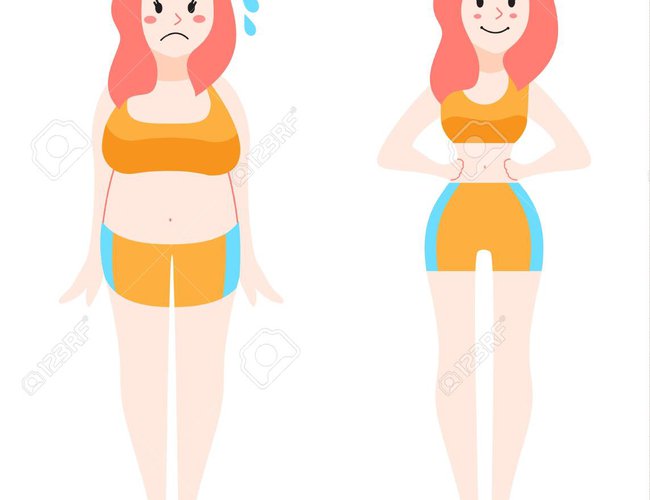Women are the most affected because they are the most bombarded by advertising to be super thin, with a perfect face and an eternal youth
 Beauty is defined as the quality of things or people that generate visual pleasure, delight, or admiration, However, today, our society and the mass media, which have been given the role of transmitters of values and models of behavior and responsible for giving a vain and exaggerated sense of physical beauty and the body forms. They have generated that the physical beauty is an added social value, leaving aside the characteristics inherent to the personality.
Beauty is defined as the quality of things or people that generate visual pleasure, delight, or admiration, However, today, our society and the mass media, which have been given the role of transmitters of values and models of behavior and responsible for giving a vain and exaggerated sense of physical beauty and the body forms. They have generated that the physical beauty is an added social value, leaving aside the characteristics inherent to the personality.
In addition, they have made men and women an object of commercial advantage and practitioners of cultural consumption, which has led them to adopt behavior in which there is an exacerbated concern to care for, nourish and maintain the physical form of their bodies. This is what is known as “body worship.” Women are the most affected because they are the most bombarded by advertising to be super thin, with a perfect face and an eternal youth. Anorexia and bulimia are the most known disorders and are characterized by a fear of being fat.
With the rise of mass media, the popular image of women, in general, has undergone a substantial change throughout the twentieth century. The body shapes of the most admired and beloved models have remained consistently thinner, representing an almost impossible ideal for ordinary women.
The journey of fat begins in the mouth, moves to the stomach, and then flows into the small intestine, where it is ultimately absorbed. The inner linings of these digestive organs secrete enzymes, which are proteins that perform biochemical functions such as shredding molecules into smaller pieces. Once fat enters the stomach, the enzymes in the digestive tract called lipases begin their hard work.
Do not look at the scale, look in the mirror. Although for years we have lived under the tyranny of numbers that measure our efforts in kilograms (as if instead of people we were fruits of a supermarket), the truth is that to check whether or not you are thinner you need to know if what you have lost is weight or fat. How? Observing the changes or contrasting the measurements each month. Diets too restrictive may make you lose weight, but not fat. it will be water, glycogen and in the worst cases even lost muscle mass in the process, without which it will be much easier to recover everything lost as it is responsible for burning the calories we consume.
Weight is a tricky subject and we all know that it is not always the best indicator of one’s health or size, and any size and shape of the body is a very personal issue. Being overweight can be embarrassing and it knocks your confidence, so it’s only natural that you do not want to highlight this between friends and even with the couple, but it’s worrying that so many women are beginning to believe their own lies.
Educators should be aware that stereotypes about weight are strong especially in the female gender, leading to unhappiness with the body that is developing through a natural process. School health promotion programs in schools can guide students to understand and accept differences in their own bodies. We need to emphasize other characteristics (wit, integrity, talent, intelligence, sense of humor etc) when assessing the “value” of people and especially women. It will be difficult for individuals to have a healthy attitude towards their own body.
Physical beauty is always associated with happiness, social and professional success. Your happiness does depend on weight. Certainly, Beauty is not happiness. Praise people for reasons other than physical appearance. Be active. Exercise, at least 60 minutes, almost every day of the week.
Eat well, eat smaller portions, consume foods with less fat, sugar, salt, and calories, eat lots of fruits, vegetables, and whole grains. Try to eat five servings of healthy food every day. When you look in the mirror, make sure you perceive what you like about your appearance and remember it.
People who are overweight or obese enjoy no more than thin people, rather suffer more from cardiovascular and degenerative diseases, sleep worse, their sexual relations are not satisfactory and they become depressed more. It is shown that as the scale rises proportionally, the quality of life of the person lowers.
An obsession to lose weight leads to continuous discomfort with ourselves. They realize that the real problem is usually in the head and not on the scale. It is important to stop transmitting to society, and especially to young people, that happiness will be brought by physical and superficial things as a certain weight.
Beauty is in the mind, in the spirit, and in love. Please do not confuse yourself. Loving yourself is also to love life with those extra kilos. It’s not the height, the weight, the muscles, it’s the inner beauty, heart, and humility that makes you a great person.




